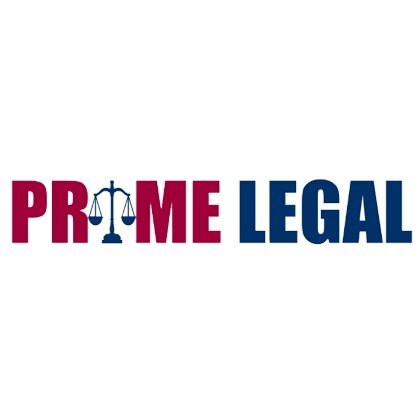Best Merger & Acquisition Lawyers in Nepal
Share your needs with us, get contacted by law firms.
Free. Takes 2 min.
Or refine your search by selecting a city:
List of the best lawyers in Nepal
About Merger & Acquisition Law in Nepal
Merger and Acquisition (M&A) law in Nepal primarily revolves around the consolidation of companies or assets through various types of financial transactions, such as mergers, acquisitions, consolidations, tender offers, purchase of assets, and management acquisitions. In Nepal, M&A activities are governed by a combination of local corporate laws, tax laws, regulations by the Securities Board of Nepal (SEBON), and oversight by the Nepal Rastra Bank for financial institutions. The goal is often to achieve growth, competitive advantage, diversification, or cost efficiency. The process can be complex, involving various legal, financial, and regulatory considerations.
Why You May Need a Lawyer
Engaging in M&A transactions can be intricate due to the multitude of legal issues involved. Here are some common situations where legal assistance might be necessary:
- Performing Due Diligence: To assess the risks and benefits comprehensively, legal expertise is required to review contracts, compliance with laws, and potential liabilities.
- Drafting Legal Documents: Lawyers are essential in drafting and reviewing agreements such as sale and purchase agreements, confidentiality agreements, and non-compete clauses.
- Regulatory Compliance: Navigating the regulatory landscape involves meeting requirements set by SEBON and other local authorities.
- Negotiation Support: Legal advisors contribute to negotiating terms and conditions to protect clients' interests and ensure fairness in the transaction.
- Handling Disputes: In cases of disputes, having legal guidance can help resolve issues efficiently and legally.
Local Laws Overview
The legal framework for M&A in Nepal is shaped by several key statutes and regulations:
- Company Act: Governs the incorporation, operation, and amalgamation of companies.
- Securities Related Laws: Especially for public companies, SEBON regulations are critical to ensure transparent disclosure and shareholder rights.
- Foreign Investment and Technology Transfer Act: Covers aspects of foreign investment in Nepali businesses which are crucial for cross-border M&A.
- Taxation Laws: Involves understanding the taxation implications of M&A transactions, such as capital gains tax and VAT.
- Labor Laws: Acquisition of a company includes liabilities related to employees under labor regulations.
Frequently Asked Questions
What is the difference between a merger and an acquisition?
A merger is when two companies agree to combine and form a new entity, while an acquisition is when one company purchases another, either fully or mostly, without forming a new entity.
How is due diligence conducted in M&A transactions?
Due diligence involves a comprehensive appraisal of a business by a prospective buyer, particularly its assets, liabilities, and commercial potential. This may include financial audits, legal checks, and operational assessments.
What are the tax implications of M&A in Nepal?
Tax implications can be significant in M&A transactions, including capital gains tax, VAT, and potential double taxation for international deals. It's crucial to understand these implications to ensure compliance and cost-effectiveness.
Are there any restrictions on foreign ownership in M&As in Nepal?
Yes, foreign ownership is subject to certain restrictions and requires approvals from relevant Nepali authorities under the Foreign Investment and Technology Transfer Act, which governs such investments.
What role does SEBON play in M&A transactions?
SEBON oversees the regulatory framework for securities in Nepal and ensures compliance, especially in transactions involving public companies, requiring disclosures and other regulatory compliances.
Is competition law relevant to M&A in Nepal?
Yes, competition law aims to prevent monopolies and promote fair competition. M&A transactions must be reviewed to ensure they do not result in unfair market dominance.
How can employee issues be managed during an acquisition?
M&As often affect employees, requiring compliance with labor laws concerning transfer of employment, layoffs, or reduction in force. Negotiations and legal guidance can help manage these issues.
What documents are crucial in M&A transactions?
Key documents include Letters of Intent, Confidentiality Agreements, Sale and Purchase Agreements, and other ancillary agreements outlining terms and conditions.
What are the typical timelines for completing an M&A transaction?
The timeline can vary widely based on the complexity of the deal, regulatory requirements, and due diligence processes, often taking several months to over a year.
What are common challenges in M&A transactions?
Common challenges include valuation discrepancies, cultural and organizational integration, regulatory approvals, and potential litigation risks.
Additional Resources
Here are some resources and organizations that may be beneficial for individuals seeking legal advice in M&A:
- Securities Board of Nepal (SEBON): The regulatory body overseeing securities markets in Nepal.
- Nepal Rastra Bank: Provides guidance for financial sector compliance regarding M&As.
- Ministry of Industry, Commerce, and Supplies: Offers information on foreign investment policies.
- Federation of Nepalese Chambers of Commerce & Industry (FNCCI): Can provide networking opportunities and business insights.
- Legal Firms Specializing in M&A: Consult legal firms with a strong track record in handling M&A cases.
Next Steps
If you need legal assistance in M&A in Nepal, consider the following steps:
- Consult with a legal expert who has experience in M&A to discuss your specific needs and circumstances.
- Perform preliminary research and gather all necessary documentation relevant to your transaction.
- Obtain an evaluation of potential risks and benefits, including regulatory and tax implications.
- Ensure compliance with local laws and regulations pertaining to your company's industry.
- Engage in thorough due diligence to understand fully the potential liabilities and obligations involved in the transaction.
Lawzana helps you find the best lawyers and law firms in Nepal through a curated and pre-screened list of qualified legal professionals. Our platform offers rankings and detailed profiles of attorneys and law firms, allowing you to compare based on practice areas, including Merger & Acquisition, experience, and client feedback.
Each profile includes a description of the firm's areas of practice, client reviews, team members and partners, year of establishment, spoken languages, office locations, contact information, social media presence, and any published articles or resources. Most firms on our platform speak English and are experienced in both local and international legal matters.
Get a quote from top-rated law firms in Nepal — quickly, securely, and without unnecessary hassle.
Disclaimer:
The information provided on this page is for general informational purposes only and does not constitute legal advice. While we strive to ensure the accuracy and relevance of the content, legal information may change over time, and interpretations of the law can vary. You should always consult with a qualified legal professional for advice specific to your situation.
We disclaim all liability for actions taken or not taken based on the content of this page. If you believe any information is incorrect or outdated, please contact us, and we will review and update it where appropriate.
Browse merger & acquisition law firms by city in Nepal
Refine your search by selecting a city.

















